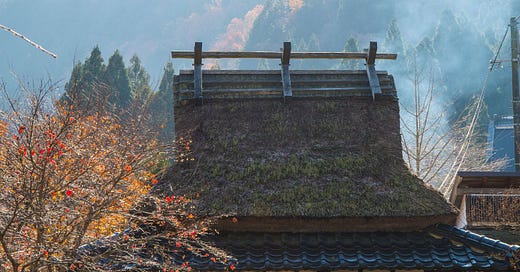When purchasing real estate in Japan, the following costs are required:
Brokerage Fee
Real Estate Acquisition Tax
Judicial Scrivener Fee
Stamp Duty
Fixed Asset Tax & City Planning Tax (shared with the seller at the time of purchase, then paid annually thereafter)
Among these, the most significant and potentially highest cost is the brokerage fee.
This is the commission paid to the real estate brokerage firm.
In this article, we will explain the legal revision regarding brokerage fees that took effect in 2025.
By reading this article, you will gain a better understanding of the most substantial cost associated with purchasing real estate in Japan.
Can You Purchase Real Estate Without a Brokerage Firm?
In some cases, it is possible to acquire real estate without involving a brokerage firm. Examples include:
A direct contract between the buyer and seller
A corporation directly selling or purchasing its own real estate
Purchasing real estate through a court auction
For consultations regarding real estate purchases, please contact us.
1. Basic Calculation Method for Brokerage Fees
When purchasing real estate in Japan through a brokerage firm (licensed real estate agent), a brokerage fee is charged. This fee is calculated based on the purchase price of the property as follows:
Standard Brokerage Fee Calculation Formula
The maximum brokerage fee for real estate transactions is determined by the following formula:
Up to ¥2 million: 5%
Over ¥2 million to ¥4 million: 4% + ¥20,000
Over ¥4 million: 3% + ¥60,000
Example Calculation
For a property priced at ¥50 million, the brokerage fee is calculated as follows:
¥50,000,000 × 3% + ¥60,000 = ¥1,560,000
¥1,560,000 × 1.1 (10% consumption tax) = ¥1,716,000Thus, the maximum brokerage fee would be ¥1,716,000.
2. 2024 Legal Revision: Changes to Brokerage Fees for Low-Priced Vacant Homes
In 2024, a legal revision was enacted, changing the brokerage fee calculation method for low-priced properties, such as vacant homes.
Key Changes
The price threshold for low-cost properties was raised from ¥4 million to ¥8 million.
Both the seller and buyer can now be charged for on-site inspection costs.
On-site inspection costs can be added regardless of the complexity of the mediation process.
The upper limit for on-site inspection costs is no longer restricted to actual expenses.
For agency transactions, brokerage fees can be doubled.
Brokerage fees for rental mediation of vacant homes can also be doubled.
Example Calculations
Case 1: Brokerage for the Sale of a ¥5 Million Vacant Home
Calculate the standard brokerage fee:
¥5,000,000 × 3% + ¥60,000 = ¥210,000Add on-site inspection costs (up to ¥300,000 allowed)
If the inspection cost is ¥100,000:
¥210,000 + ¥90,000 (inspection fee) = ¥300,000Including 10% consumption tax: ¥330,000
Case 2: Agency Representation for a ¥5 Million Vacant Home Sale
Standard brokerage fee calculation (same as mediation):
¥210,000 + ¥90,000 (inspection fee) = ¥300,000For agency representation, the fee can be doubled:
¥300,000 × 2 = ¥600,000Including 10% consumption tax: ¥660,000
With this revision, real estate agents can now receive appropriate compensation even for handling low-priced vacant homes.
Summary
In Japan, brokerage fees are determined based on the property's purchase price, with the standard formula being "(Sale Price × 3%) + ¥60,000 + Consumption Tax" as the upper limit.
The 2024 legal revision raised the price threshold for low-cost vacant homes from ¥4 million to ¥8 million and allowed both the seller and buyer to share on-site inspection costs, enabling more flexible transactions. Additionally, brokerage and agency fees for vacant home transactions can now be doubled, significantly impacting the market.
When purchasing real estate in Japan, it is essential to understand brokerage fee calculations and the latest legal revisions to ensure fair costs.



